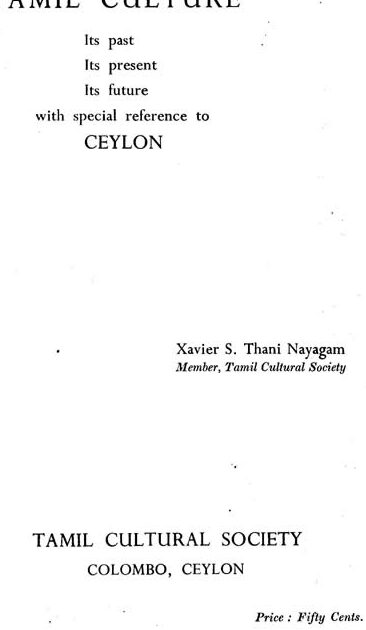
The Meaning and Significance of Purpose in Tamil Culture

Are you curious about the purpose in Tamil? Discover the deeply rooted cultural beliefs and spiritual perspectives that shape the meaning and significance of purpose in this South Indian language. Join us as we delve into the profound wisdom and philosophical insights that Tamil tradition offers on finding meaning and fulfilling our life's purpose. Explore the richness of Tamil culture as we unravel the mysteries of purpose. Stay tuned for an insightful journey into the meaning of things.
- The Meaning of Purpose in Tamil: Understanding the Essence in the Context of {Thematic Topic}
-
Frequent questions
- What is the purpose or meaning behind the Tamil concept of "arul", which is often translated as divine grace or blessings?
- How does the cultural and religious significance of "karma" in Tamil philosophy contribute to finding purpose and meaning in life?
- Can you explore the role of dharma in Tamil culture and explain how it shapes individual purpose and the meaning of things?
The Meaning of Purpose in Tamil: Understanding the Essence in the Context of {Thematic Topic}
The meaning of purpose is a concept that holds great significance in Tamil culture. Understanding the essence of purpose becomes even more crucial when considering it in the context of {Thematic Topic}. In Tamil, purpose is often referred to as "ஆண்டாள்" (aandaal), which encapsulates the idea of having a clear direction or objective in life.
Maybe you may be interestedThe Meaning of Obligation in Tamil: Exploring its SignificanceTamil culture places immense value on living a purposeful life. It emphasizes the importance of finding one's true calling and aligning every action and decision with that purpose. Having a defined purpose gives meaning and fulfillment to individuals' lives.
In the context of {Thematic Topic}, understanding the essence of purpose entails delving into how it relates to this specific area. It involves exploring the underlying motivations and goals that drive people's actions within this context.
Maybe you may be interestedExploring the Richness of Tamil: Discover What's Available in TamilUnderstanding the meaning of purpose in the context of {Thematic Topic} can guide individuals towards a more fulfilling and meaningful experience. It can help them gain clarity on their objectives and make choices that are in alignment with their purpose.
In conclusion, the meaning of purpose in Tamil expands beyond mere existence. It encompasses the notion of living with intention, striving towards personal and collective growth, and finding fulfillment in every aspect of life. By understanding the essence of purpose in the context of {Thematic Topic}, individuals can unlock a deeper level of meaning and satisfaction in their endeavors.
Maybe you may be interestedUnlocking the True Essence: Confer Meaning in MarathiFrequent questions
What is the purpose or meaning behind the Tamil concept of "arul", which is often translated as divine grace or blessings?
The concept of "arul" in Tamil refers to the divine grace or blessings bestowed upon an individual. It conveys the idea that one's well-being and success are not solely dependent on their own efforts, but also on the benevolence and favor of a higher power. The concept of "arul" is deeply ingrained in Tamil culture, particularly in spiritual and religious contexts.
Arul is believed to be the divine intervention that brings about positive outcomes, protection, and guidance. It is often considered as a manifestation of the compassion and mercy of God or the divine forces. Many Tamil people seek arul through prayers, rituals, and acts of devotion, hoping to receive blessings for various aspects of life such as health, wealth, relationships, and spiritual growth.
Maybe you may be interestedThe Adorable Meaning of Tamil: Exploring the Charm and SignificanceThe concept of arul encompasses the understanding that humans are limited in their abilities and knowledge, and that the divine grace is necessary to overcome obstacles, achieve goals, and lead a fulfilling life. It encourages humility, surrender, and faith in the power of the divine.
In Tamil literature and religious scriptures, stories and teachings emphasize the significance of arul as a transformative force that can uplift individuals, alleviate suffering, and bring about positive change in society. It is seen as a gift that cannot be earned through personal merit alone, but is bestowed out of the divine's boundless love and compassion.
Maybe you may be interestedThe Significance of Adequate Liquor in Hindi CultureOverall, the concept of arul in Tamil culture highlights the belief in a higher power that plays an active role in the lives of individuals, offering divine grace and blessings to navigate through life's challenges and attain spiritual well-being.
How does the cultural and religious significance of "karma" in Tamil philosophy contribute to finding purpose and meaning in life?
In Tamil philosophy, "karma" holds significant cultural and religious importance, which contributes to individuals finding purpose and meaning in life. The concept of karma refers to the consequences of one's actions, both good and bad, that determine their future experiences and circumstances.
Maybe you may be interestedThe Significance of 'It Will Come' in Hindi: Unraveling the MeaningKarma emphasizes personal responsibility for one's actions, highlighting the belief that one's deeds shape their present and future conditions. This viewpoint fosters a sense of accountability and encourages individuals to act with integrity and righteousness in all aspects of life.
The cultural significance of karma in Tamil philosophy lies in its role as a guiding principle for ethical behavior. It serves as a moral compass, urging individuals to make choices that are aligned with dharma (righteousness) and avoid actions that may lead to negative outcomes or spiritual harm.
Maybe you may be interestedThe Significance of Integrity in Marathi: Understanding its Meaning and ImportanceAdditionally, karma provides a framework for understanding the dynamics of life and the inequalities observed in society. It suggests that each individual's current circumstances are a result of their past actions, including actions from previous lives in the belief of reincarnation. This perspective promotes acceptance and empathy towards others, as one recognizes that everyone is experiencing the consequences of their own karma.
Religiously, the concept of karma is closely tied to the beliefs of Hinduism and Buddhism, both of which have deep roots in Tamil culture. In Hinduism, karma is intertwined with the cycle of birth, death, and rebirth, known as samsara. The pursuit of good karma becomes a means to attain moksha, the ultimate liberation from this cycle. Similarly, in Buddhism, karma plays a central role in the path towards enlightenment, as individuals seek to accumulate positive karma to progress spiritually.
Overall, the notion of karma in Tamil philosophy offers individuals a sense of purpose and meaning by emphasizing personal responsibility and the idea that one's actions have consequences. It guides individuals to live ethically, fosters compassion and understanding, and provides a framework for spiritual growth and ultimate liberation.
Can you explore the role of dharma in Tamil culture and explain how it shapes individual purpose and the meaning of things?
Dharma plays a significant role in Tamil culture and greatly impacts individuals' sense of purpose and the meaning they attribute to things in their lives. Dharma, derived from Hindu philosophy, is the moral and ethical code that guides one's conduct and righteous actions.
In Tamil culture, dharma is deeply rooted in religious beliefs and is considered a fundamental principle that governs all aspects of life. It encompasses various responsibilities and duties that individuals must fulfill, both towards themselves and others. Following dharma is believed to lead to personal growth, harmony, and spiritual enlightenment.
Individuals in Tamil culture often find their purpose and meaning in life by aligning their actions with dharma. This involves adhering to moral principles, social obligations, and fulfilling family responsibilities. Living in accordance with dharma brings a sense of fulfillment and contentment as it is seen as fulfilling one's duty and contributing positively to society.
Furthermore, dharma also influences the way individuals perceive and interpret the world around them. It provides a framework for understanding the interconnectedness of all beings and events, emphasizing the importance of maintaining balance and harmony. This worldview shapes the meaning individuals ascribe to various experiences, relationships, and material possessions.
For example, individuals may view success not solely based on personal achievements, but also on how well their actions adhere to dharma. Material wealth and possessions are seen as a means to fulfill one's responsibilities and obligations rather than as an end in themselves. The pursuit of wealth is balanced by the responsibility to give back to society and help those in need, thus infusing a deeper meaning into material possessions.
Moreover, dharma also guides individuals in making ethical choices and decisions. It serves as a moral compass, helping individuals navigate dilemmas and conflicts while considering the greater good. By adhering to dharma, individuals strive to lead a righteous and virtuous life that brings meaning to their existence.
In summary, dharma plays a pivotal role in Tamil culture by shaping individuals' purpose and attributing meaning to things in their lives. By following the moral and ethical code of dharma, individuals find fulfillment, maintain balance, and contribute positively to society. It provides a framework for perceiving the world and influences the way individuals interpret their experiences, relationships, and material possessions.
In conclusion, exploring the concept of purpose in Tamil in the context of meaning of things sheds light on the profound cultural and spiritual underpinnings of this notion. The term "artha" encompasses a deeper understanding of one's dharma, or life's purpose, emphasizing the importance of fulfilling societal and cosmic responsibilities. Moreover, the emphasis on interconnectedness and the recognition of the divine in all aspects of life shape Tamil perspectives on purpose. By delving into Tamil cultural and philosophical expressions, we gain a richer appreciation for the multiplicity of meanings associated with purpose and how it contributes to a more meaningful existence. Thus, embracing diverse worldviews and exploring their implications on the concept of purpose allows us to expand our own understanding and engage in meaningful cross-cultural dialogue.
Si quieres conocer otros artículos parecidos a The Meaning and Significance of Purpose in Tamil Culture puedes visitar la categoría RELIGION.




